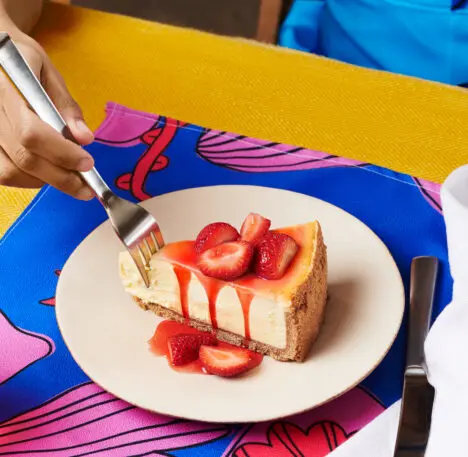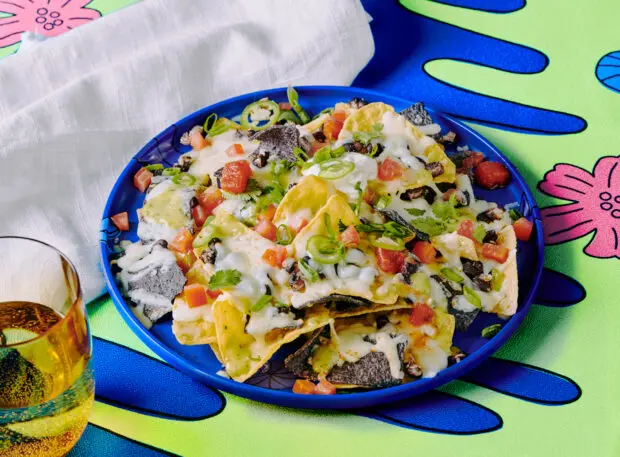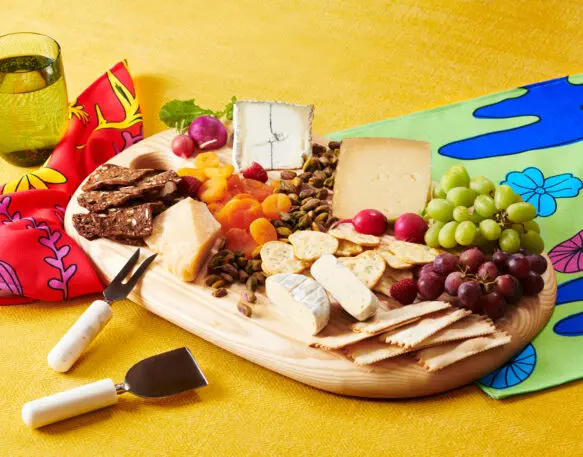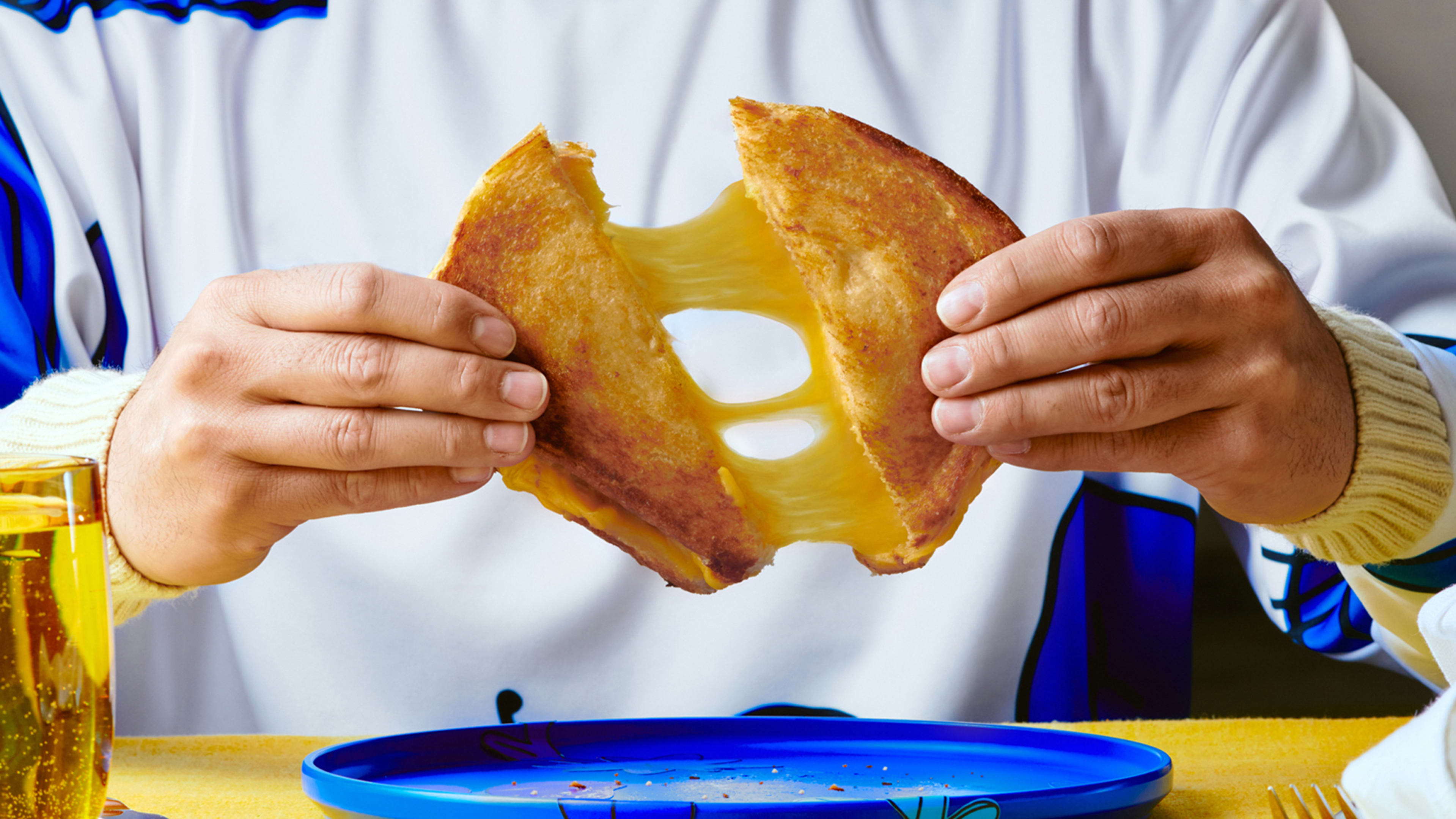When Magi Richani began to shift to a plant-based diet five years ago, she faced a challenge common to people making a dietary move away from animal products: She didn’t want to give up cheese. “It was just so freaking hard,” she says. “I couldn’t find anything out there that would satisfy that bite of cheese on a pizza, or in a grilled cheese sandwich. And I tried every single plant-based cheese out there.”

Her startup, Nobell Foods, announced a $75 million Series B round of funding as it launched out of stealth today, backed by Andreessen Horowitz, Breakthrough Energy Ventures, and other investors on July 21. In total, it has raised $100 million so far. For more than four years, the company has pioneered a new way to make dairy products from plants. The key lies in casein, a protein unique to milk, which the startup now grows in soybeans.
“Milk is water, fat, sugar, and protein, and in order to re-create that delicious mouthfeel, texture, everything that we love about it, we really need to have these specific proteins that are only produced by cows after they give birth,” Richani says. Casein is the main protein found in milk, which helps make cheese stretch and melt in a particular way. “We discovered a way to basically turn plants into little factories for making casein, so you don’t have to get it from a cow,” she says. “You can get it from our plants.”

“Plants are the cheapest form of protein that we can get,” Richani says. The company uses soybeans that have been genetically edited to make casein; soy makes protein more efficiently than any other plant. Ultimately, the cost of making the final products could be cheaper than using milk from a cow.

“For me, what’s most important is to come up with food that doesn’t just taste great, but competes on cost. It has to be affordable,” Richani says. “We’re not going to change the system by asking people to pay two, three, five, ten times more for the alternative, right? Plants are the cheapest way to make proteins, and if we can change their profile so they’re making any protein we want, we can compete with a cow. Cows are commoditized at a large scale and dairy is subsidized by the government. And we can still compete, and not just compete—eventually we can undercut that price structure, because of the fact that we’re working with plants.”
The biggest challenge was to successfully modify the soybean plant to produce the new protein. Once that worked, it took relatively little time to formulate the first cheeses, including a smoked provolone and a mozzarella. “The cheese is melty and gooey and stretchy and everything you’d expect from cheese,” Richani says (Fast Company was unable to sample it).
Others cheeses, like cheddar, are more challenging to replicate because they take months to age. But the biggest portion of the cheese market in the country comes from mozzarella and fast-food cheese, a blend of American cheese that goes on burgers. “Those two categories make up 60% of the entire cheese market in the U.S. by volume,” Richani says. “So if you think, what we want to start with are those two main things. And luckily for us, both of them are fresher cheeses that don’t need these long aging periods.” The company will later develop other dairy products.

“I’m obsessed with stretchiness,” Richani says. “We have a KPI internally for how long your cheese is stretching.” With a more convincing product, it will be easier to convince more people who recognize the climate and animal welfare benefits to make the choice to eat it. “I hear people saying they’re going to give up red meats and chicken, but they’re never going to give up cheese,” she says. “It’s a high hurdle, and I think the mouthfeel and the taste that we’re achieving is unique. . . . We’re not comparing ourselves to other products—really our benchmark is the animal-based cheese.”
Recognize your brand’s excellence by applying to this year’s Brands That Matter Awards before the early-rate deadline, May 3.
